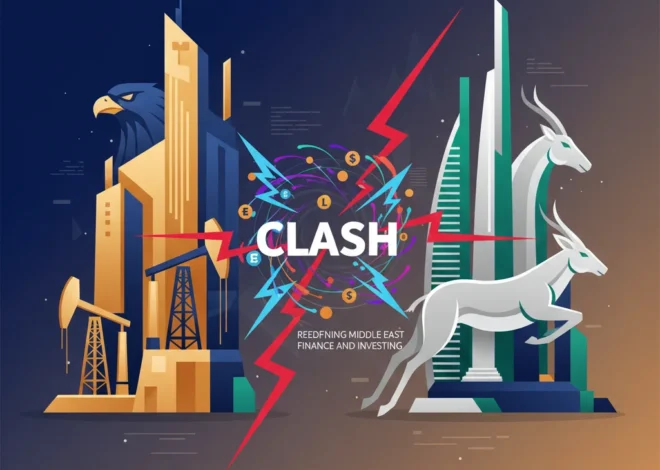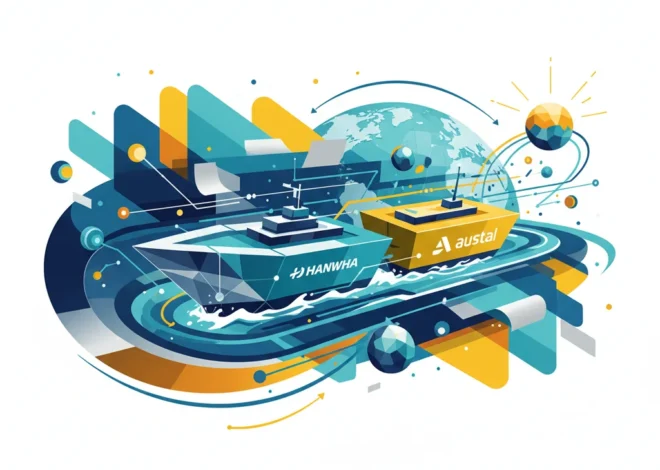
The Trillion-Dollar Handshake: Decoding the High-Stakes Intersection of Geopolitics and Finance
In the world of high finance and international relations, optics are everything. A handshake, a photo-op, a carefully chosen phrase—each element is a calculated move on a global chessboard. Few events have illustrated this more starkly than the gilded Oval Office welcome extended by then-President Donald Trump to Saudi Crown Prince Mohammed bin Salman (MBS). Set against the grim backdrop of the killing of journalist Jamal Khashoggi, the meeting was a masterclass in transactional diplomacy, where immense financial opportunity was deliberately positioned to overshadow profound ethical and geopolitical concerns.
The core of the event, as reported by the Financial Times, was President Trump’s recasting of the Khashoggi affair with the simple, dismissive phrase: “things happen.” This statement was not an accident; it was a signal to the global markets, to investors, and to world leaders. The message was clear: the United States, under his leadership, was open for business, and the price of admission was a focus on future deals, not past deeds. The centerpiece of this implicit negotiation was a staggering figure touted by Trump himself: a potential $1 trillion in investments from the Kingdom into the American economy.
This single meeting encapsulates a pivotal dynamic in modern economics: the increasing use of sovereign capital as a primary tool of statecraft. For investors, finance professionals, and business leaders, understanding this event is not merely a matter of political curiosity. It is a critical case study in navigating the complex, often treacherous, terrain where immense capital flows meet geopolitical risk. It forces us to ask: What is the true cost of a trillion-dollar handshake, and what are the long-term implications for the global financial ecosystem?
The Power of the Purse: Saudi Arabia’s Economic Arsenal
To comprehend the significance of the $1 trillion figure, one must first understand the financial machinery behind it. Saudi Arabia is not just an oil state; it is an aspiring investment superpower. At the heart of this ambition is Saudi Vision 2030, a sweeping economic and social reform blueprint designed to wean the Kingdom off its dependency on oil revenues. The primary engine for this transformation is the nation’s sovereign wealth fund, the Public Investment Fund (PIF).
The PIF has evolved from a relatively passive domestic holding company into one of the most aggressive and influential investment vehicles in the world. With assets under management projected to exceed $2 trillion by 2030, the fund’s strategy is to deploy capital globally into high-growth sectors. Its portfolio is a testament to this global reach, with significant stakes in technology, entertainment, renewable energy, and infrastructure. This isn’t just about financial returns; it’s about acquiring influence, securing future technologies, and building strategic partnerships.
The potential $1 trillion investment in the U.S. economy, therefore, should be viewed through this strategic lens. It represents a symbiotic opportunity: for Saudi Arabia, a chance to diversify its holdings and anchor its most critical geopolitical alliance; for the U.S., a massive injection of capital to fuel innovation, infrastructure, and job growth. Below is a look at some of the PIF’s notable global investments, illustrating the breadth of its strategy.
| Company / Sector | Nature of Investment | Strategic Rationale |
|---|---|---|
| Lucid Motors | Major equity stake | Securing a foothold in the electric vehicle market and future mobility. |
| Uber Technologies | Early, significant investment | Capitalizing on the growth of the global gig economy and logistics technology. |
| Activision Blizzard / Gaming Sector | Substantial holdings | Tapping into the multi-billion dollar global entertainment and e-sports industry. |
| SoftBank Vision Fund | Anchor investor | Gaining broad exposure to a diverse portfolio of late-stage tech startups. |
| Newcastle United F.C. | Full acquisition | Utilizing “soft power” through sports ownership to enhance global image. |
This aggressive deployment of capital is reshaping the landscape of international finance, making the PIF a kingmaker in venture capital circles and a formidable player on the global stock market.
Navigating the Geopolitical-Financial Nexus
For investors and corporations, the implications of this transactional diplomacy are profound and multifaceted. The allure of such massive foreign direct investment (FDI) must be weighed against a new calculus of risk that extends far beyond traditional market volatility.
1. Impact on the U.S. Economy and Stock Market
An influx of capital on the scale discussed would have immediate and noticeable effects. Sectors like technology, infrastructure, and renewable energy would likely see a surge in funding and valuation. This could drive significant gains in the stock market, create high-paying jobs, and accelerate innovation. However, it also introduces concentration risk. Over-reliance on a single, state-controlled source of capital can make key sectors of the economy vulnerable to the political whims of a foreign government. A sudden withdrawal of funds or a shift in investment strategy based on diplomatic tensions could send shockwaves through the market, impacting everything from individual stock trading to the stability of the broader banking system.
2. The Rise of “Statecraft as an Investment Strategy”
The meeting was a clear signal that sovereign wealth is now a primary lever of foreign policy. This trend is not limited to Saudi Arabia; nations across the globe are using their state-owned enterprises and sovereign funds to forge alliances, secure resources, and project power. This blurs the lines between pure financial investing and geopolitical maneuvering. A PIF investment in a U.S. fintech startup, for example, is not just a bet on financial technology; it’s a strategic move to gain insight and influence in a critical sector of the American economy. According to the U.S. Trade Representative, the U.S. and Saudi Arabia already have a robust trade relationship, but this level of direct investment elevates the economic entanglement to an entirely new level.
India's IPO Boom: From Valuation Frenzy to a New Era of Financial Maturity
3. The Challenge for Corporate Governance and Ethics
Business leaders are caught in the crossfire. Rejecting capital from a source like the PIF could mean losing a competitive edge to a rival who accepts it. Accepting it, however, could invite public backlash, alienate customers, and attract scrutiny from regulators and human rights organizations. This dilemma is particularly acute in Silicon Valley, where a culture of progressive values often clashes with the reality of fundraising in a globalized world. The decision to engage becomes a high-stakes bet on whether the economic benefits will outweigh the potential reputational damage. This is a new and complex chapter in corporate social responsibility, one where boardroom decisions have direct foreign policy implications.
A Pragmatic Alliance in a Multipolar World?
To provide a balanced analysis, it’s essential to consider the pragmatic argument in favor of such an alliance. Proponents would argue that in an era of renewed great power competition, particularly with China, the U.S. cannot afford to alienate capital-rich and strategically located partners like Saudi Arabia. From this perspective, overlooking certain issues is a necessary realpolitik calculation to maintain American influence and economic strength.
Furthermore, Saudi Arabia remains a lynchpin in the global energy market. Cooperation is essential for maintaining stability in oil prices, a critical factor for the health of the global economy. A $1 trillion investment can be seen as a powerful anchor, solidifying a decades-old alliance and ensuring continued alignment on key economic and security issues. This perspective frames the Trump-MBS meeting not as an ethical compromise, but as a shrewd and necessary act of economic statecraft aimed at securing American interests. As one analysis from the Brookings Institution notes, the U.S.-Saudi partnership has long been complex and transactional, and this event simply brought that reality into sharp focus.
Brewing Discontent: Is Starbucks' Labor Crisis a Ticking Time Bomb for Its Stock?
Conclusion: The Enduring Price of Capital
The Oval Office meeting between Donald Trump and Mohammed bin Salman was more than just a political event; it was a defining moment for 21st-century global finance. It highlighted a world where capital flows are increasingly intertwined with hard-nosed geopolitics, and where ethical considerations can be relegated to the sidelines in the pursuit of massive economic deals.
For the investment community, the key takeaway is that geopolitical risk is no longer a peripheral concern but a central factor in any sound investment thesis. The source of capital, the political stability of that source, and the ethical implications of the partnership are now critical variables that can impact long-term value. The trillion-dollar handshake serves as a potent reminder that in the modern economy, every major investment tells a political story. The challenge for today’s leaders—in business, finance, and government—is to learn how to read it.


